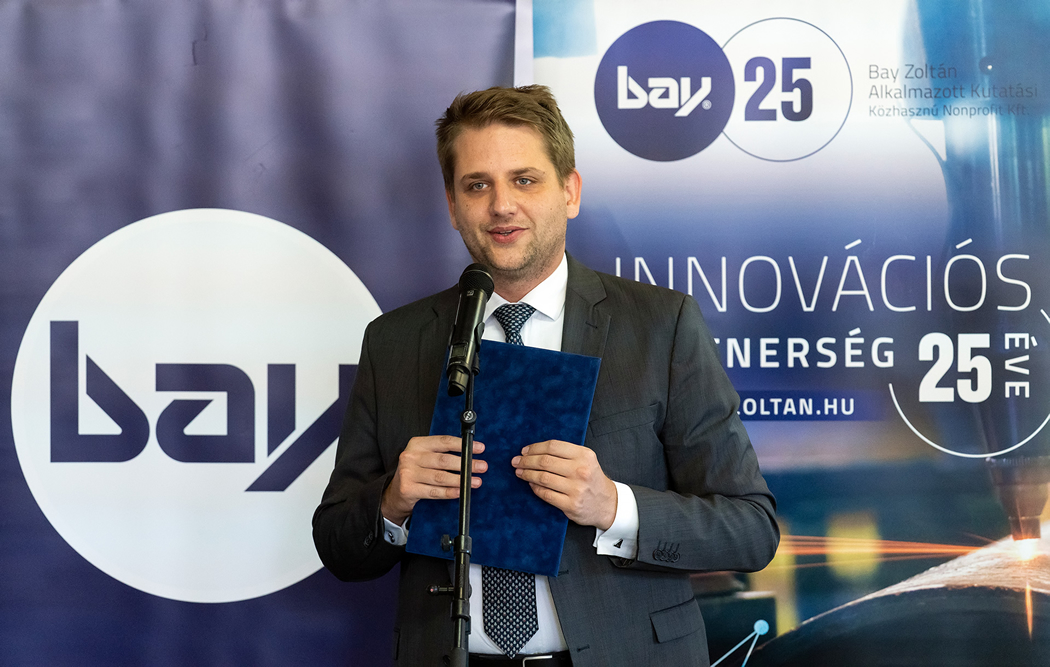The Thematic Excellence Programme primarily aims to strengthen the RDI focus and research productivity in the funded institutions. “In the long term, we expect the programme to increase the openness of research, to encourage collaboration within the RDI ecosystem, to facilitate the social, economic and environmental exploitation of research results and the optimal use of research capacities, and to offer a predictable, competitive and attractive career path for researchers in the institutions,” Deputy State Secretary for Innovation Ádám Szigeti pointed out in the Laser Hall of Bay Zoltán Research Institute.
It is important to ensure that research addresses the most pressing socio-economic challenges in a way that can be translated to practice, therefore the project proposals submitted to the Thematic Excellence Programme had to fit with one of the following research areas: “Secure Society and Environment”, “Industry and Digitisation”, “Health” and “Culture and Family”. The two funded thematic areas of Bay Zoltán Nonprofit Ltd. were presented by Norbert Grasselli, Managing Director.
- In the thematic area “Development of application-oriented materials, technological, theoretical and testing methods”, the researchers explore advanced materials and engineering technologies and study the potential industrial applications of 3D metal printing. The institution has already patented several solutions resulting from basic research in metal matrix composites, metal foams and metal emulsions, and now the researchers intend to further develop them for industrial application. They also deal with operational safety, the damage processes of operating equipment, as well as the development of relevant modelling and testing methods.
- In the thematic area “Development of new, product-oriented, bio-based solutions for the circular economy”, research focuses on the multispectral, analytical and DNA-based tracking of microbiological processes, and the scientific processing of data collected by drones from large areas with the aim of finding new connections. The researchers will study the microbial behaviour of mine dumps and industrial by-products, as well as the potential ways of microbial extraction and recovery of valuable raw materials, such as rare earth metals.
Norbert Grasselli highlighted that the recently awarded funding will not only enable more focused research but also the procurement of modern research equipment and software, the building and development of partnerships, and a broader dissemination of the achievements.
Budapest, 26 June 2019















